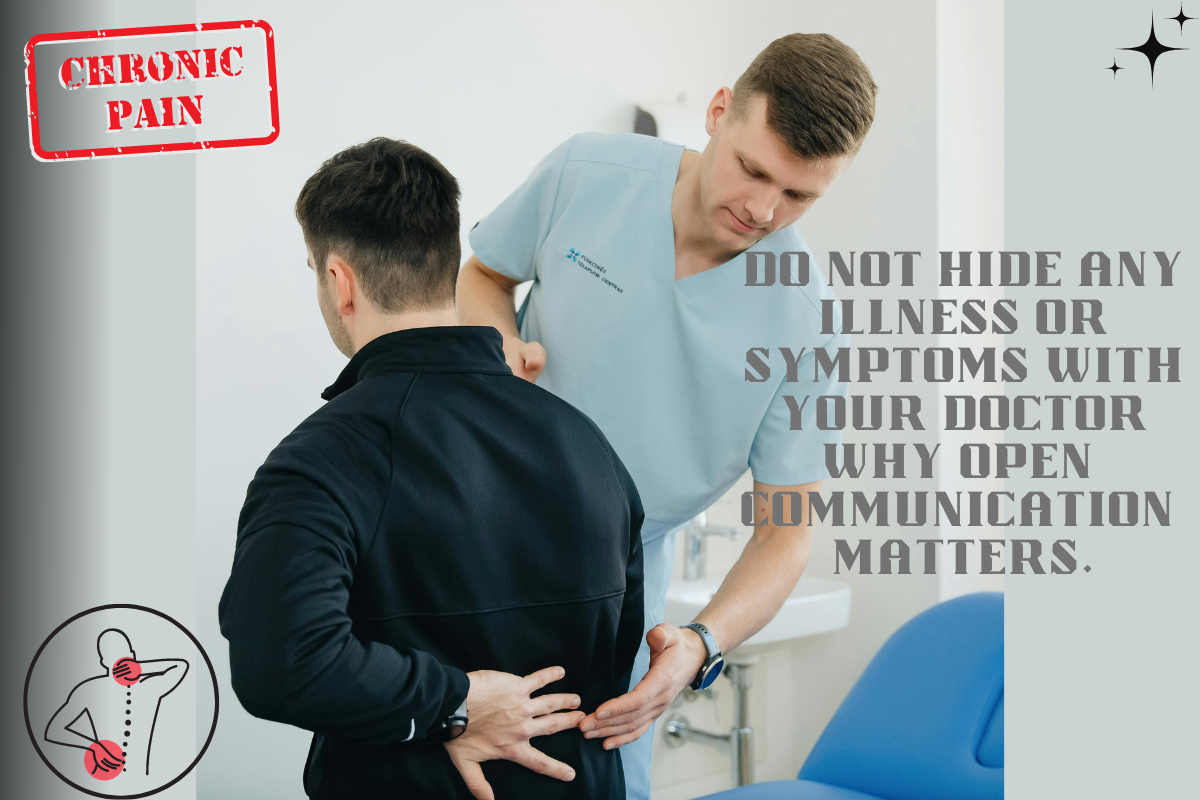‘Symptoms’ – Do Not Hide Any Illness or Symptoms with Your Doctor #1: Why Open Communication Matters.

Introduction
In your journey towards health, open communication with your doctor is paramount. Concealing symptoms or illnesses may hinder proper diagnosis and treatment. Let’s explore why honesty is the best policy when it comes to your health.
Understanding the Importance of Open Communication
What is Open Communication?
Open communication involves transparent and honest dialogue between you and your doctor.
Why is Open Communication Vital?
Open communication fosters trust, ensures accurate diagnosis, and enables personalized treatment plans.

Do Not Hide Any Illness or Symptoms with Your Doctor #1: Why Open Communication Matters.
Consequences of Hiding Symptoms
Delayed Diagnosis
Concealing symptoms may lead to delayed diagnosis, allowing conditions to worsen over time.
Inaccurate Treatment
Hiding symptoms may result in misdiagnosis or inappropriate treatment, jeopardizing your health.
Barriers to Open Communication
Fear and Embarrassment
Fear of judgment or embarrassment may prevent patients from disclosing sensitive symptoms.
Lack of Trust
A lack of trust in healthcare providers can hinder open communication.
Overcoming Barriers to Communication
Building Trust
Developing a trusting relationship with your doctor encourages open dialogue and honesty.
Addressing Fear and Embarrassment
Doctors create a safe space for patients to discuss sensitive topics without fear of judgment.
The Doctor-Patient Relationship: A Two-Way Street
Patient Responsibilities
Patients should actively participate in their healthcare by sharing relevant information with their doctors.
Doctor Responsibilities
Doctors must create an environment conducive to open communication and actively listen to patients’ concerns.
Conclusion
Open communication between patients and doctors is essential for effective healthcare delivery. By fostering trust, addressing barriers, and promoting honest dialogue, patients and doctors can work together to achieve optimal health outcomes.
Table of Contents
FAQs
- Why is it important to be honest with your doctor?
- Honesty with your doctor ensures accurate diagnosis and appropriate treatment, leading to better health outcomes.
- What should I do if I feel uncomfortable discussing certain symptoms with my doctor?
- Express your concerns to your doctor, who can help alleviate any discomfort and provide support and guidance.
- Can my doctor share my medical information without my consent?
- Generally, doctors require patient consent to share medical information unless mandated by law or in emergency situations.
- How can I prepare for a doctor’s appointment to ensure open communication?
- Write down any symptoms, concerns, or questions beforehand to facilitate discussion during your appointment.
- What should I do if I disagree with my doctor’s diagnosis or treatment plan?
- Communicate openly with your doctor about your concerns and seek a second opinion if necessary to make informed decisions about your health.



6 thoughts on “‘Symptoms’ – Do Not Hide Any Illness or Symptoms with Your Doctor #1: Why Open Communication Matters.”